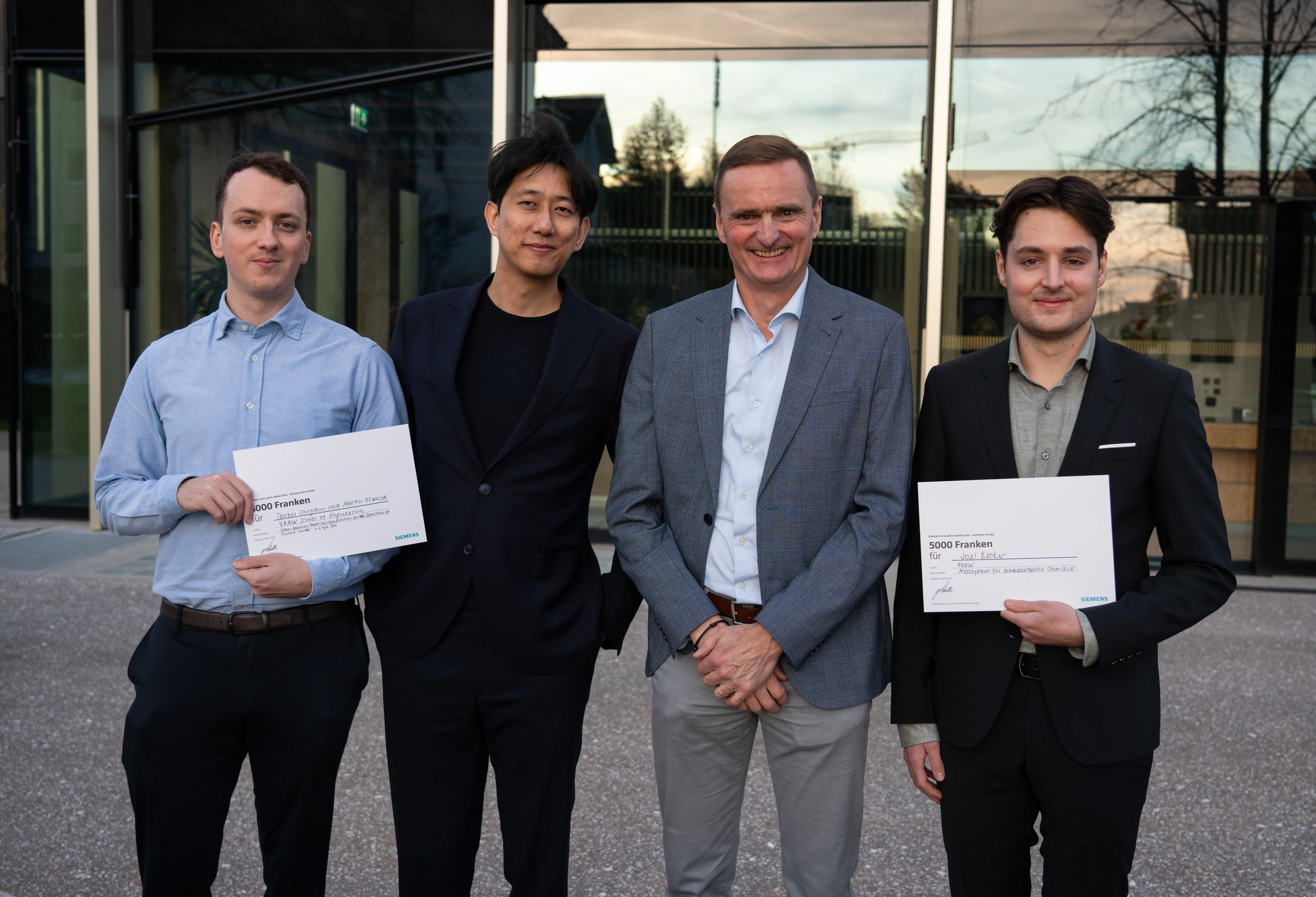ZHAW graduates win the Audience Award of the National Siemens Excellence Award 2024
Their Bachelor's thesis won the public vote: ZHAW graduates Martin Oswald and Tenzin Samdrup Langdun win the National Siemens Excellence Award 2024 with their AI model for better detection of thyroid cancer! The prize thus returns to the ZHAW School of Engineering for the first time in more than ten years.

What a success: even winning the regional Siemens Excellence Award was a great achievement for the two computer science graduates Martin Oswald and Tenzin Samdrup Langdun. In the public voting for the National Siemens Excellence Award, which ended on 18 March, the two won against five other nominated teams. In view of the strong competition, the award was by no means predictable, as the two emphasise: "We didn't necessarily expect to win the award, as the other projects are also very topical and interesting. Cancer is a prominent topic in our society and the possibility of being able to develop solutions in this area, even as computer scientists, has probably resonated," is how the two explain the reasons why so many people voted in their favour. "The award is great recognition for all our efforts and the hurdles we overcame during our Bachelor's thesis. We are very grateful for the great support from our friends and family and also for the active help and support of the ZHAW," they say.
AI model to be further developed
The ZHAW graduates can well imagine that the award will open up opportunities for them to work on other exciting projects in the future. For now, however, both have their Master's degree programme on the agenda. Last summer, they further developed their deep learning model together with the ZHAW Centre for Artificial Intelligence (CAI) and partners from the USA: "We wrote a manuscript that is now under review at Scientific Reports. However, a student from the CAI will continue the project as part of an in-depth thesis. We are excited to see how she will expand our application."